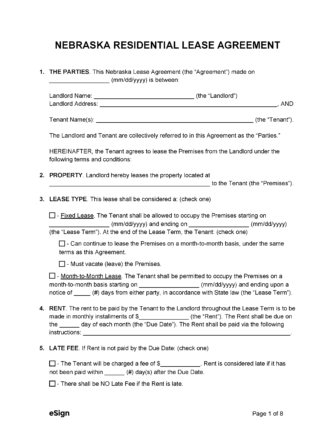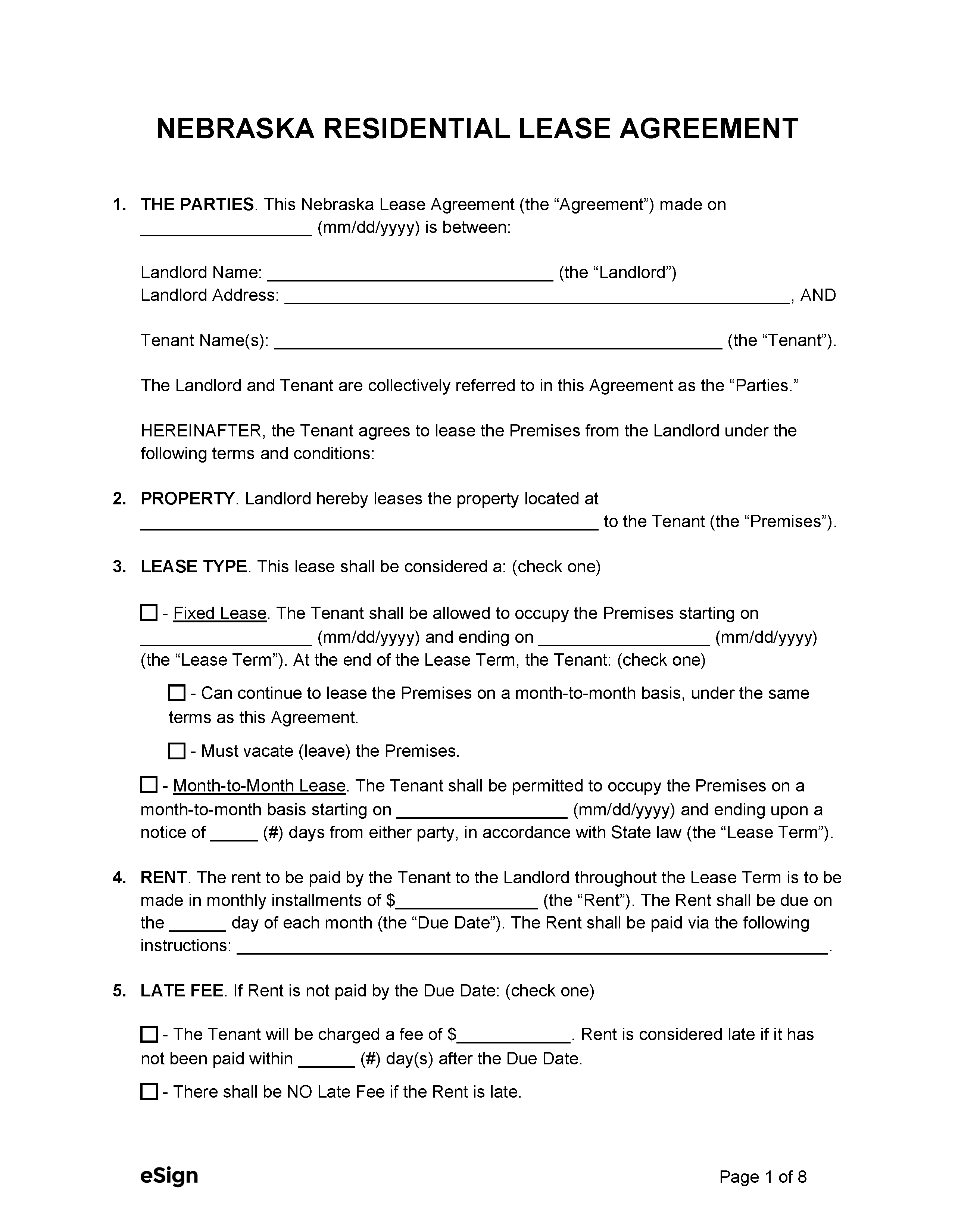Lease Agreements: By Type (6)
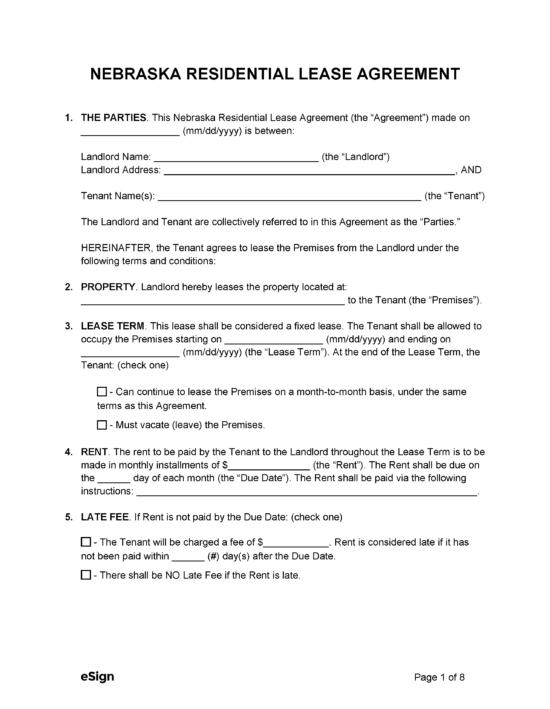 Standard (1-Year) Residential Lease – A standard lease agreement has a fixed end date, is used for residential property, and requires the tenant to pay monthly rent. Standard (1-Year) Residential Lease – A standard lease agreement has a fixed end date, is used for residential property, and requires the tenant to pay monthly rent.
Download: PDF, Word (.docx), OpenDocument |
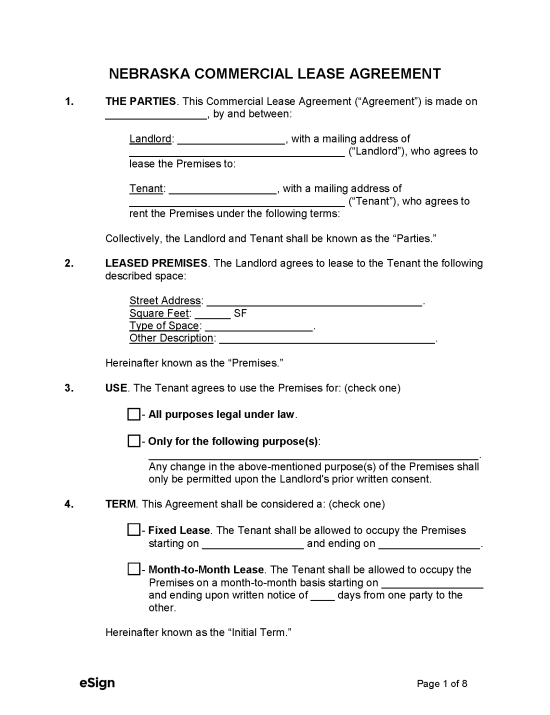 Commercial Lease Agreement – A commercial lease agreement is a contract between a landlord and a business entity/owner that enables the latter to operate their business on the landlord’s rented property. Commercial Lease Agreement – A commercial lease agreement is a contract between a landlord and a business entity/owner that enables the latter to operate their business on the landlord’s rented property.
Download: PDF, Word (.docx), OpenDocument |
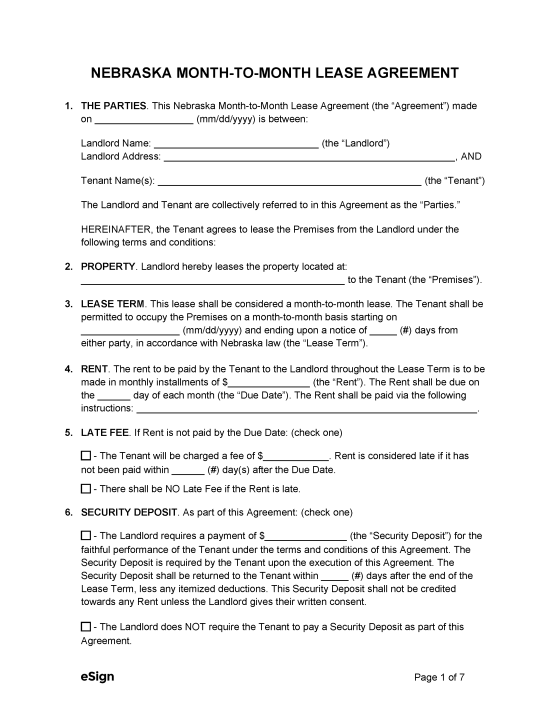 Month-to-Month Lease Agreement – A month-to-month lease agreement is a type of at-will agreement that enables a tenant to rent a residential property without a fixed lease term. Month-to-Month Lease Agreement – A month-to-month lease agreement is a type of at-will agreement that enables a tenant to rent a residential property without a fixed lease term.
Download: PDF, Word (.docx), OpenDocument |
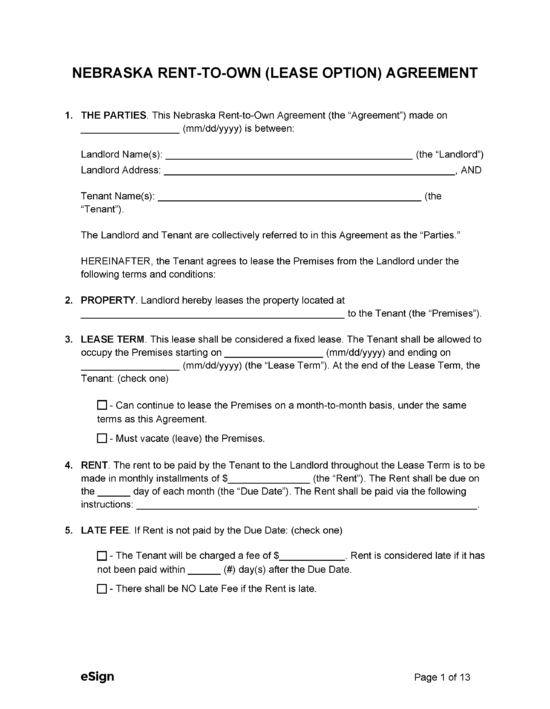 Rent-to-Own Agreement (Lease Option) – This lease includes an option to purchase if the tenant satisfies all conditions. Rent-to-Own Agreement (Lease Option) – This lease includes an option to purchase if the tenant satisfies all conditions.
Download: PDF, Word (.docx), OpenDocument |
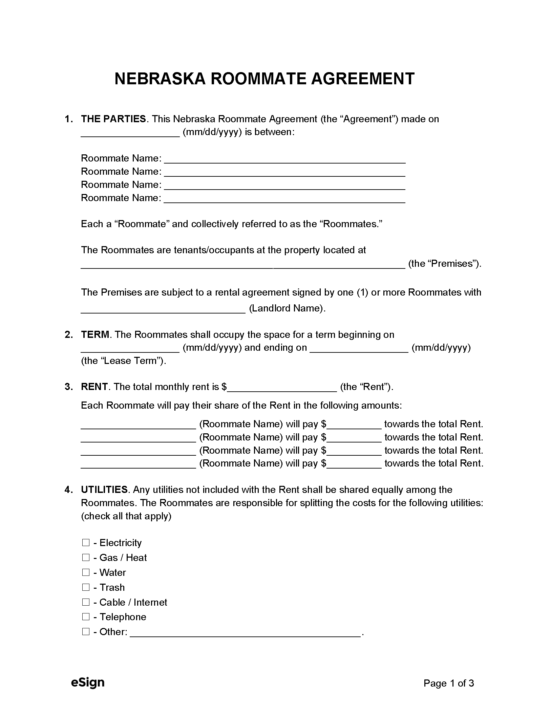 Roommate Agreement – A roommate agreement is a contract separate from the original lease agreement that delineates the rights and responsibilities of roommates. Roommate Agreement – A roommate agreement is a contract separate from the original lease agreement that delineates the rights and responsibilities of roommates.
Download: PDF, Word (.docx), OpenDocument |
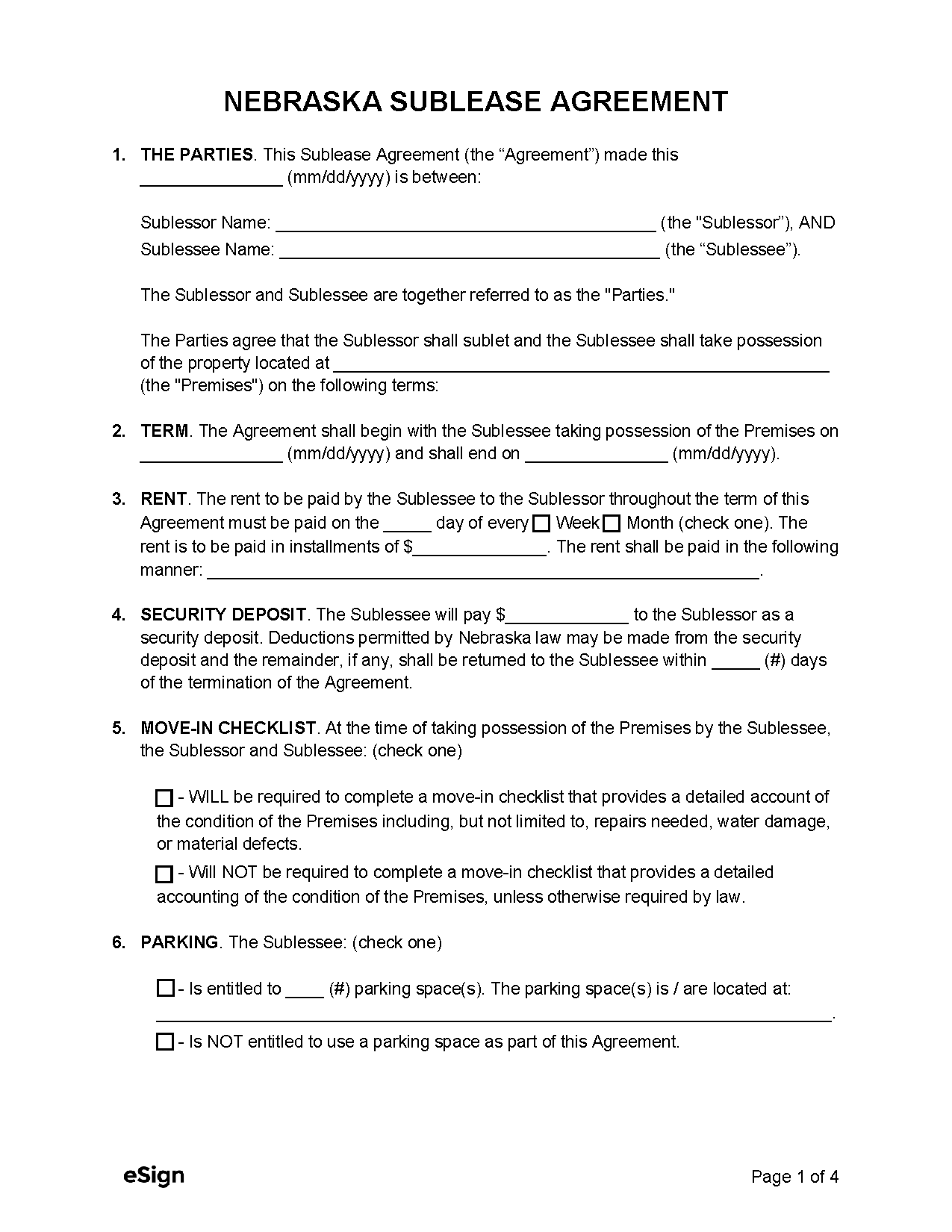 Sublease Agreement – A sublease agreement allows a tenant to rent out a portion or the entirety of their rental unit to a sublessee, usually for a reduced price. Sublease Agreement – A sublease agreement allows a tenant to rent out a portion or the entirety of their rental unit to a sublessee, usually for a reduced price.
Download: PDF, Word (.docx), OpenDocument |
Required Disclosures (2)
- Lead-Based Paint Disclosure (PDF) – By federal law, a lead-based paint disclosure form must be delivered to tenants if the property was constructed before 1978.[1]
- Landlord/Agent Identification – The landlord must disclose the name and address of the property manager and the owner, or an agent of an owner who’s authorized to receive notices and demands.[2]
Security Deposits
Maximum Amount ($) – Landlords cannot demand more than one month’s rent as a security deposit.[3]
- Exceptions – An additional pet security deposit may be requested at a maximum fee of one-quarter of a month’s rent.
Collecting Interest – Collecting interest on security deposits is not mentioned in Nebraska statutes.
Returning to Tenant – The security deposit must be returned to the lessee within 14 days after the tenancy ends.[4]
Itemized List Required? – Yes, a written account of deductions from the security deposit must be mailed to the tenant no later than 14 days after the lease is terminated.[5]
Separate Bank Account? – No statute requires landlords to keep security deposits in a separate bank account.
Landlord’s Entry
General Access – The tenant should receive at least 24 hours’ notice before the landlord enters the premises.[6]
Immediate Access – Landlords may access the rental property without consent in an emergency situation.[7]
Rent Payments
Grace Period – No grace period is required by law; rent is due on the date agreed upon in the lease agreement.[8]
Maximum Late Fee ($) – There is no statutory limit for late fees.
Bad Check (NSF) Fee – A $10 fee may be charged if a tenant’s check bounces and they were aware they had insufficient funds.[9]
Withholding Rent – If the landlord negligently or deliberately fails to provide essential services (running water, electricity, etc.), the tenant can send notice to the landlord, procure the missing services, and deduct their cost from the rent.[10]
Breaking a Lease
Non-Payment of Rent – A 7-day notice to quit may be used to demand that a tenant either pay late rent or vacate the property.[11]
Non-Compliance – If a tenant violates their lease agreement or has caused a health and safety violation on the premises, they may be served a 14/30-day notice to comply or quit, giving them 14 days to fix the problem or move out in 30 days.[12]
Lockouts – Tenants may only be evicted by a court order. Landlords who attempt lockouts or interrupt essential services may face damages up to three month’s rent.[13]
Leaving Before the End Date – A tenant who abandons their rental unit is generally responsible for paying rent for the rest of the lease term. The rental agreement will expire if the landlord finds a new tenant before the end of the term (which they must attempt to accomplish).[14]
Lease Termination
Month-to-Month Tenancy – When either the landlord or the tenant wants to terminate a month-to-month tenancy, they must give at least 30 day’s notice.[15]
Unclaimed Property – If the tenant leaves behind personal property after moving out, the landlord must send a written notice asking the tenant to pay storage fees and reclaim their property. The deadline for reclamation is 7 days if the notice is hand-delivered, or 14 days if mailed.[16]
